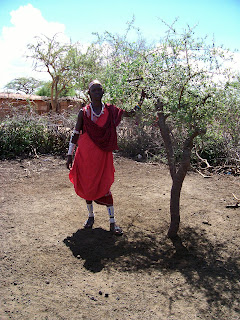Cheetahs Under Threat

The Kenya Wildlife Service reported at least one confirmed incident of cheetah poaching in Tsavo West, during 2003 (Kenya Wildlife Service, personal communication).
In 2005, the David Sheldrick Wildlife Trust reported a cheetah cub that had been caught in a poacher’s snare in Tsavo West.
According to the senior warden of Tsavo East, in 2008, poaching for bush meat reached unprecedented levels in the neighborhood of the Tsavo National Parks and with thousands of wire snares set indiscriminately, cheetahs are certainly not excluded (Kenya Wildlife Service,
personal communication).
Our project reports continued conflicts with cheetah and other predators within adjacent communities, including pastoralists bordering the Tsavo parks who frequently graze their livestock within park boundaries.
Problems with crowding, driving within meters of cheetahs (on most occasions illegally, off-road), and general "harassment" of cheetahs is prevalent in Tsavo and most other national parks and reserves in Kenya. Reported and PI observed cases of this unethical driver and tourist behavior have a negative effect on cheetah behavior. Cheetahs are easily stressed and frightened off, when approached or surrounded in these situations, which results in the cheetah forced to move from ts resting place, retreat from a kill, or even abandon cubs. Changes in a cheetah's natural behavior can both directly and indirectly affect their chance of survival.
In 2005, the David Sheldrick Wildlife Trust reported a cheetah cub that had been caught in a poacher’s snare in Tsavo West.
According to the senior warden of Tsavo East, in 2008, poaching for bush meat reached unprecedented levels in the neighborhood of the Tsavo National Parks and with thousands of wire snares set indiscriminately, cheetahs are certainly not excluded (Kenya Wildlife Service,
personal communication).
Our project reports continued conflicts with cheetah and other predators within adjacent communities, including pastoralists bordering the Tsavo parks who frequently graze their livestock within park boundaries.
Problems with crowding, driving within meters of cheetahs (on most occasions illegally, off-road), and general "harassment" of cheetahs is prevalent in Tsavo and most other national parks and reserves in Kenya. Reported and PI observed cases of this unethical driver and tourist behavior have a negative effect on cheetah behavior. Cheetahs are easily stressed and frightened off, when approached or surrounded in these situations, which results in the cheetah forced to move from ts resting place, retreat from a kill, or even abandon cubs. Changes in a cheetah's natural behavior can both directly and indirectly affect their chance of survival.
